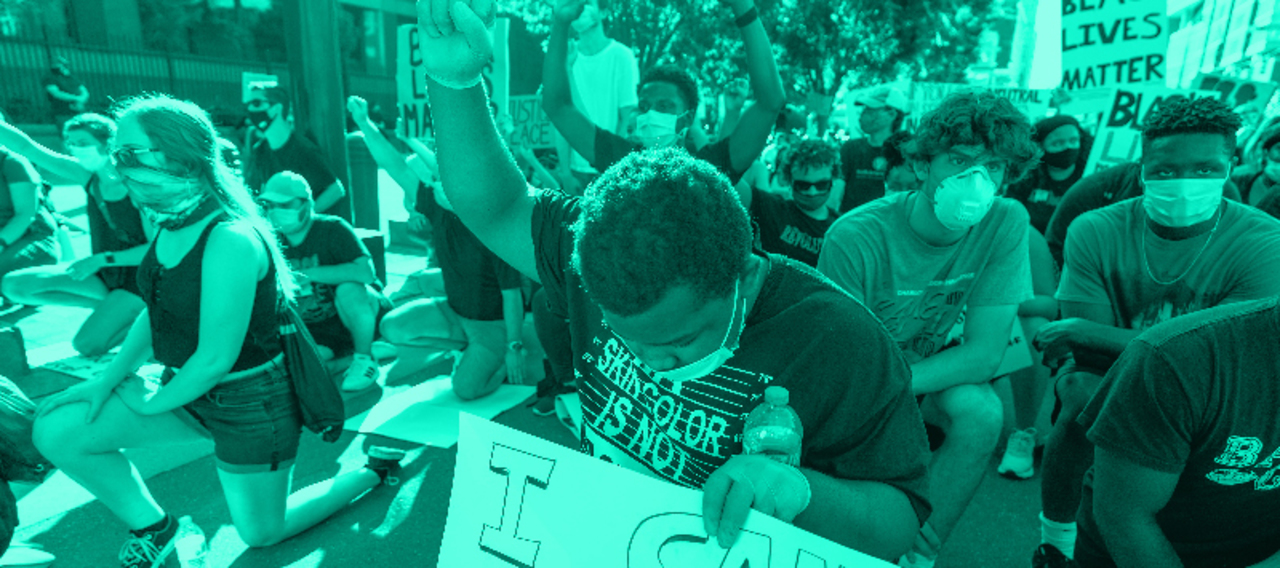Art directors from across the Kansas City area participated in a virtual panel discussion on, "The Role of Antiracism Work and Healing in Museums."
The Sept. 9 was the ninth in the Critical Conversations series of panel discussions addressing systemic racism, sponsored by the UMKC Divison of Diversity and Inclusion. It was the first of the 2021-22 school year.
The museum-oriented discussion was in collaboration with The Nelson-Atkins Museum of Art.
UMKC people are taking thoughtful action on campus and in our community to ensure lasting and comprehensive changes through Roos Advocate for Community Change, a campus-wide effort announced in June 2020.
Critical Conversations are part of that initiative. The goal of each discussion is to enlighten, educate and explore the causes and potential cures for racism. Attendance to the discussions is free.
Panelists for the session include:
- Gary O'Bannon (moderator), executive in-resident, UMKC Henry W. Bloch School of Management
- Rashida Phillips, executive director of the American Jazz Museum of Art
- Julian Zugazagoitia, director and CEO of The Nelson-Atkins Museum of Arts
- Glenn North, executive director of the Bruce R. Watkins Heritage Center
- Matthew Naylor, president and CEO of the National World War I Museum and Memorial
- Anna Marie Tutera, director of the Kansas City Museum
Excerpts from the conversation are below. To view the complete recording of the conversation, click here.
Anti-racism and how it's discussed in the museum field
Tutera: We are defining anti-racism as a conscious decision and commitment to fight against racism on every level and on every aspect. Institutionally, we are looking at policies and procedures and practices within the museum that have contributed to racism, caused it and perpetuated it.
Lack of diversity among museum staff and board members
Tutera: You cannot have an all-white or majority-white staff or an all-white or majority white board and make any significant change. You cannot serve a diverse community without looking internally first. You can't commit to anti-racism until you take a deep dive into your own history of staffing and history of board leadership.
Zugazagoitia: If people do not see themselves in museums, then museums will become irreverent.
Naylor: Having a board that argues for us to be an institution for all is important. A board that wants to give a voice to the LGTBQ community, African American, Indian American, the place of women, raising those issues allows those issues to be express to the public. Board leadership, if it's an expression of the DNA of the organization, even though there is still is a gap and we are still not where we ought to be, can still make a world of difference.
Holding people accountable
Phillips: We really have to get back to people-to-people, really deep dialogue. This is not only a space for worship and entertainment, but it's a space where we come together. It is the kitchen and we've got to realize that there's some beautiful responsibility and energy in going into a museum and seeing an exhibition and enjoying the takeaway from that. It's deeper than that.
Support needed in museums
North: Sometimes it's hard to have partnerships. Sometimes it boils down to personality differences and complicated histories between organizations and it's difficult. Sometimes when you don't have the right intention things can get diluted.

